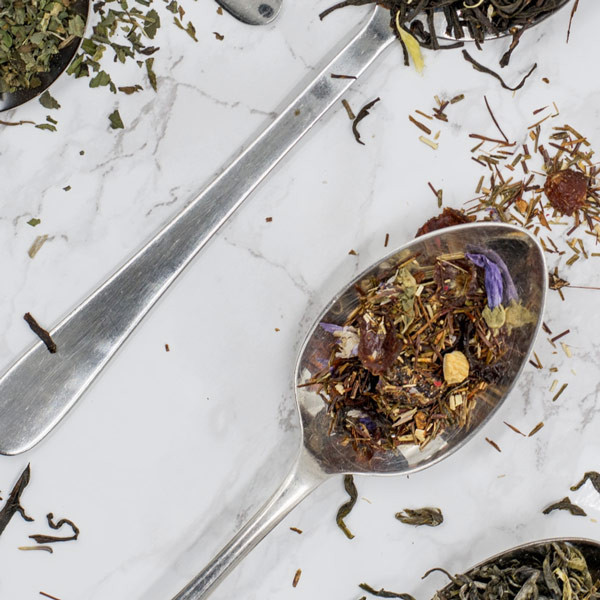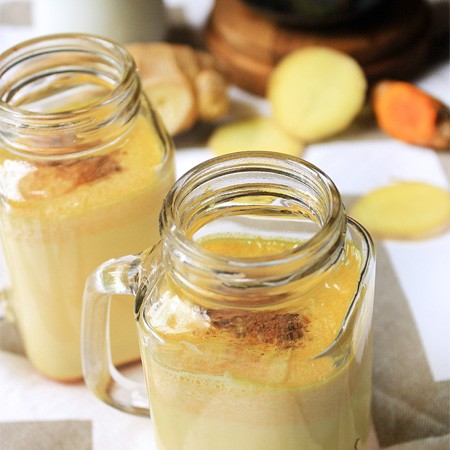The benefits of coconut oil have seen much positive coverage in our media in recent years. Now one of the more popular of the superfoods that make up our diet, it has been billed as a wonder ingredient for everything from providing healthy skin and hair care, to helping diabetics reduce their blood sugar, to boosting the immune system and fighting infection.
Its popularity amongst foodies and health fans — and the subsequent big increase in sales — has seen it crossover from being a health food store favourite to our local grocer and supermarket shelves. In recent years, coconut oil has been popularised by the support of a number of A-list celebrities including Emma Stone, Miranda Kerr and Gwyneth Paltrow, all of whom act as unofficial ambassadors for the oil.
But what is it about the oil that makes it so special? Why has it gone from being unfashionable (even abhorred) to one of the first mentioned when we talk about the uses of foods that are nutritious, tasty and great for our health and looks?
Extracted from the flesh or kernel of the ripe harvested coconut shell, coconut oil has one of the highest saturated fats content (nearly 90 percent) in foods. Until recently a diet high in saturated fats — such as that found in meat, butter and cheese — was thought to be unhealthy and considered by nutritionists to contribute to heart disease, diabetes and obesity and other diseases that are associated with the Western diet. However, all saturated fats are not the same, they differ in structure and how they are absorbed by the body. Indeed those contained in coconut oil, known as medium-chain fatty acids, are beneficial rather than harmful to our health.
What are medium-chain fatty acids?
While saturated fats have received a bad rap in regard to health, fatty acids are crucial for our health. More importantly there are a range of those defined as saturated fats — some good for us, some not so good. Coconut oil contains around 92 percent saturated fat, however this is mostly in the form of the rarer medium-chain fatty acids. It differs from long-chain fatty acids in the number of carbon atoms and this is the reason MCFAs are healthy rather than unhealthy.
For MCFAs are more easily absorbed and act in the body more like carbohydrates than fat. They are used to burn energy and the body finds them easy to digest which means they aren’t stored as fat on our bodies. Lauric acid, the medium-chain fatty acid prevalent in coconut, also has a range of antimicrobial properties when absorbed into our bodies, according to renowned author Bruce Fife. (1)
Coconut oil benefits
Skin care
Rich in fatty acids, coconut oil makes a beautiful skin moisturiser. It has a delicate and unobtrusive scent, and is a pure, invisible oil that is highly absorbable on the skin and face. When mixed with coarse sugar, the oil makes an effective and natural skin exfoliant. Mix with Neem Oil for an even more powerful and potent skin routine. Note: Only use externally when combining with Neem oil.
Hair care
Penetrates the hair follicle better than other common hair tonics for better shine and body and helps reduce hair breakage.
Digestion
Improves the digestive process by helping to absorb soluble vitamins, calcium, and magnesium. There is also some evidence to suggest that it can increase the effectiveness of essential omega-3 fatty acids by assisting the breakdown of metabolism enzymes. (2)
Heart health
Though official dietary guidelines still recommend a low saturated fat diet, there have been some studies which suggest coconut oil has a positive effect on the health of the cardiovascular system. This is due to its ability to increase the “good” HDL cholesterol in the body. (3)
Weight loss
A number of studies have shown coconut oil to be helpful in reducing weight. Again this is because it is packed full of medium-chain triglycerides, rather than the most common long-chain fatty acids. (4) These are metabolised differently to other saturated fats and burn energy rather than get stored as fat in the body.
Lowers blood sugar
The MCTs in the oil help diabetics regulate blood sugar, according to research. There is also some suggestion that a diet high in medium-chain fatty acids helps with less insulin sensitivity. (5)
Boosts immune system
Coconut contains two important ingredients that make it excellent as a boost for our immune systems. These are referred to as lauric acid and caprylic acid and both are very useful for fighting off yeast and bacterial infections. Coconut is comprised of 50 percent lauric acid, which the body converts to monolaurin, a vital antiviral agent that helps to fight a variety of viruses.
Bone health
Coconut oil uses also extend to helping to maintain bone structure and prevent bone density reduction due to age-related diseases such as osteoporosis. It also helps the body absorb calcium and magnesium, both of which are essential to help develop and maintain healthy bones.
Source of energy
As mentioned, the medium-chain fatty acids (MCFAs) contained in coconut oil are easily absorbed by our bodies as they move to the intestinal tract. However not only does this mean they are not absorbed in the blood and as fat, it also means it acts a great source of energy.
Antibacterial
Research has found that the rare medium-chain fatty acids contained in coconut oil have distinctive antiviral and antibacterial properties. (6) The most predominant MCFA in the oil is lauric oil which is used by our bodies to help remove a number of harmful bacteria.
 Raw Vegan Almond Cheesecake using Coconut Oil by Foodmatters
Raw Vegan Almond Cheesecake using Coconut Oil by Foodmatters
How to cook with coconut oil
Coconut oil can be used to replace other oils and butter in cooking. Because it has a high smoke point, it is well suited for high temperature cooking. Suitable for sauteing, roasting and stir frying, this versatile oil adds a special taste and texture to dishes, particularly if you choose the unrefined variety.
In consistency and taste coconut oil rivals butter in cooking and adds its own character. Unrefined oil — in particular — has a unique nutty flavour and will add this superb taste to your cooking. For example, when making a healthy curry, coconut oil imparts a lovely taste and aroma to the dish. Use in baking as well especially with cakes and biscuits, coconut marries its flavour well with other ingredients such as vanilla and honey.
Thinking of trying out coconut oil in a recipe? Why not try this recipe for Anzac Biscuits from Be Good Organics?
Refined vs unrefined
It’s true to say that opinion is still divided on the merits of coconut oil and its benefits to our health. However as science catches up with the long-held beliefs in traditional societies of the benefits of coconut oil, more people now recognise that it is both nutritious and excellent for such factors as skin and hair care. However it is important to select the right type of coconut oil. One of the key battles that been has raged amongst lovers of coconut oil has been that between whether to use refined or unrefined oil.
Refined oil is taken from the dried flesh of the coconut (also known as copra) and is deodorised at high heat to remove contaminants that occur during the drying process. Unfortunately many cheaper brands also use sodium hydroxide to prolong the shelf life and may use chemical solvents to extract as much oil as possible. There is also the possibility that harmful trans fats will occur as part of the hydrogenation process of the oil to boost shelf life. These harmful chemicals and unhealthy fats will combine to negate any benefit of using the oil.
However this doesn’t mean that all refined coconut oils are bad! There are a number of quality producers that take the health aspects seriously. They use natural processes to remove the oil from the flesh — usually steam — and ensure there are no chemicals or trans fats left during the refining process. Refined oils also have a higher smoking point than unrefined and are therefore better for high temperature cooking.
Unrefined (also known as “virgin” or “extra virgin”) is made from the first pressing of the coconut meat and therefore does not require chemicals to remove the contaminants. A good unrefined oil has a mild, nutty taste and is excellent for cooking. Usually considered the most beneficial of the types, unrefined, like extra virgin olive oil, is keenly sought by people seeking to boost the nutritional level of their diets.
While coconut — and coconut oil — have become more widespread in the Western diet in recent decades, they have formed an important part of the diet of many people in the world for many thousands of years. As science catches up with this ancient knowledge and use, coconut oil benefits and uses are now recognised and the superfood is here to stay.
Techniques such as oil pulling have become popular. This is the ancient Ayurvedic tradition of using coconut oil as a mouthwash and has been shown to reduce the level of bacteria in the mouth and help with mouth hygiene.
If you are not currently using the oil, why not try incorporating it, little by little, into your family’s diet. If you’re new to the oil, try using it in small amounts — one or two tablespoons a day — to allow your body to get used to the change before using it in larger amounts.
Remember though all things in moderation! Even coconut oil...
Do you have any favourite coconut oil uses or recipes? Do you prefer to use refined or unrefined oil in your diet and beauty supplements? We’d love to hear your ideas and experiences. Please share them in the comments below.

Love Health?
From recipes, trends and discounts, expect great things via email this month.
More Great Reads!

Behind The Brand: Antipodes
Recipes We Love!

Clever Cookies













